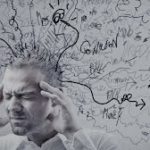Quantitative trading is a lucrative trading strategy that relies on algorithmic modeling and numerical analysis to make better trade decisions. While there are advanced and complicated methods that an advanced trader will use, even a beginner trader can start quant trading. In this blog post, we will discuss exactly that; how can you harness quant trading to bolster your trade strategies?
As a quant trader, you do need to develop a few technical skills. First, you need to become comfortable with mathematical calculations; second, you need to learn some programming skills. You must be familiar with data mining, research techniques, and automated trading systems. Read the rest of this blog post to see what a quant trader is, what he/she must do, and how you can implement this strategy.
What is a “quant trader?”
Quant traders are individuals who program advanced mathematical computer models that read and analyze financial data to make better trade decisions. They mine the available price and quote data, identify profitable trading opportunities, and create new trading strategies altogether. So, a trader with a background in mathematics who also knows computer programming (Python, C++, and MATLAB are common) are best suited for this role.
Quantitative traders tend to work for large financial institutions or hedge funds that do trades in extraordinarily large volumes (hundreds of thousands of shares at a time). An aspiring quant trader must be numbers-oriented and love quantitative analysis. How do certain data relate to each other? How does a certain price in Stock A influence Stock B? These are some of the questions quants must answer by creating advanced algorithms, and even AI.
As a quant trader, what are some of the soft skills you need to be successful?
There are three main skills that an exceptional quant trader needs, and always betters, to rise to the top of his field. The first is that he must have a very level temperament. Successful traders are constantly innovating and creating, so he must work long, stressful, and consecutive hours. A good quant trader must adapt to changing market conditions and thrive under pressure. Competition is also very high; because quant traders are intellectuals with strong work ethics, this makes staying competitive very stressful. If a quant trader can stay level-headed and relaxed, he will be able to harness quant trading to his side and maximize his profits.
The second is that quant traders must be exceptional risk-takers. This is not for those who are cautious and who enjoy familiarity. Because of leveraged trading and the dependency on computers, quant traders can experience losses larger than their available capital. A successful trader must understand risk management and risk mitigation, as failure to do so will have catastrophic implications on his company’s financial situation.
The third essential skill is that a quant trader must be comfortable with failure. A quant constantly looks for and codes new, innovative algorithmic techniques. Even if an idea seems immaculate, market conditions change, competition changes, and it can be rendered useless. This field also moves at lightning speed, so this can be extra stressful. Thus, an innovative quant trader will face failure; but those who work past failure the quickest and adapt their quantitative models will succeed.
Conclusion
Quant trading is one of the most complicated but rewarding trading fields in the finance industry. It involves coding, mathematical calculations, and advanced data analysis. Quant traders create algorithms that input data and output trade recommendations. There are multiple technical skills, such as mathematical prestige and programming, as well personality skills such as a strong temperament, solid risk-taking skills, and comfort with failure that must be mastered for a quant trader to be successful in the long term.

















